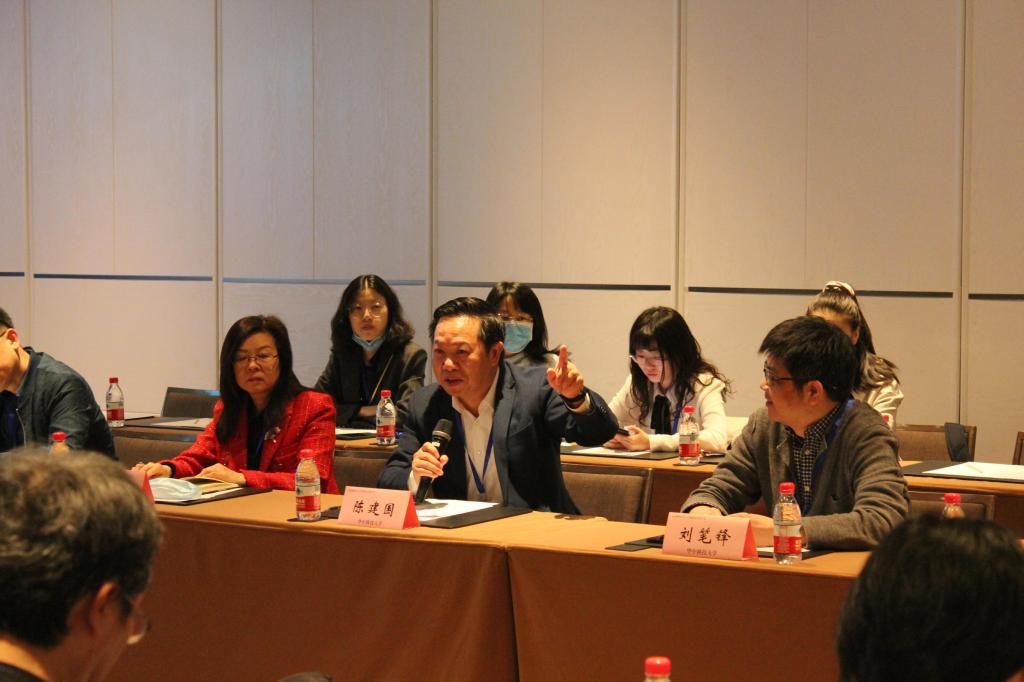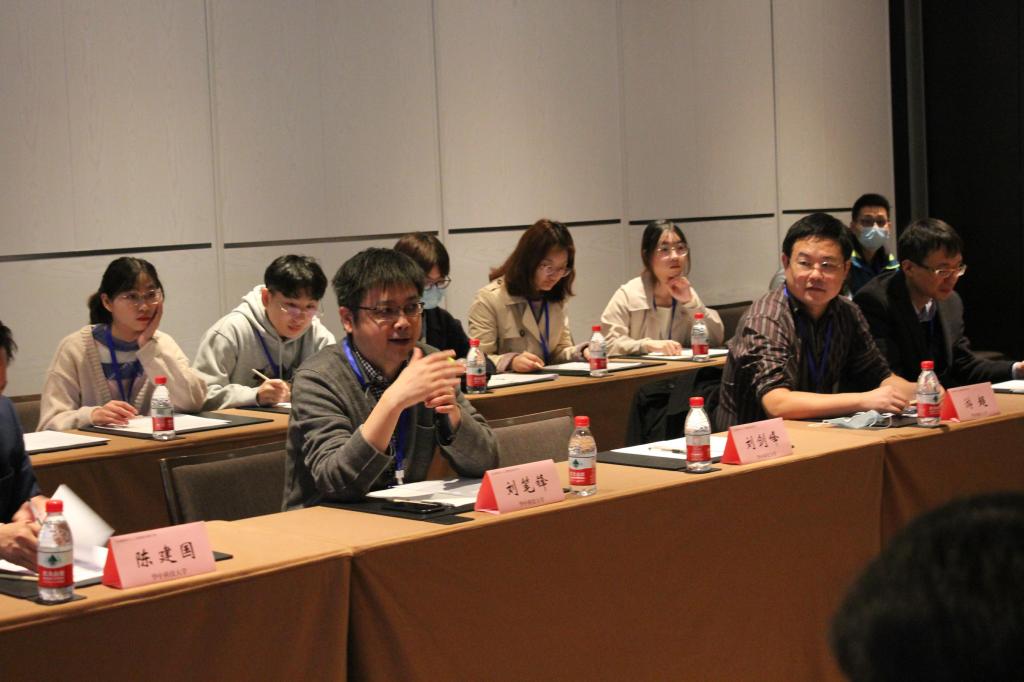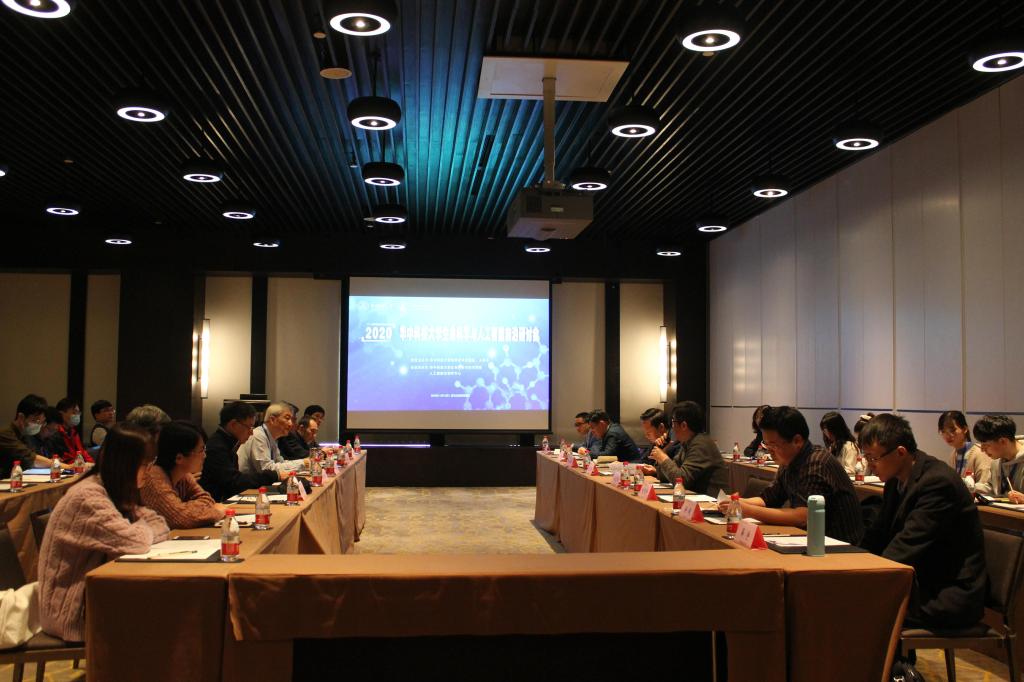(Correspondent Chen Siyi, Xia Yun, Yue Tao) On November 13, 2020, the " Seminar on Frontiers of Life Science and Artificial Intelligence", co-sponsored by Huazhong University of Science and Technology's Science and Technology Development Institute and Personnel Office, and co-hosted by College of Life Sciences and Technology and Center for Artificial Intelligence Biology, was successfully held at Hyatt Regency Wuhan Optics Valley Hotel. The theme of the conference was "How Artificial Intelligence Can Better Explore Important Biological Issues", which aimed to promote the cross-fusion of artificial intelligence and biology and promote the development of artificial intelligence related fields in our university.
The meeting was chaired by Professor Ma Cong from College of Life Sciences. Attendees included Prof. Jiahao Sha, Director of State Key Laboratory of Reproductive Medicine, Nanjing Medical University; Prof. Wei Xie, Dean of Institute of Life Sciences, Southeast University; Prof. Lingfei Luo, Southwest University; Prof. Xuegong Zhang, Tsinghua University; and Prof. Ge Shan, University of Science and Technology of China. Prof. Jianguo Chen, the Vice President of HUST; Prof. Bifeng Liu, the Executive Vice-President of the School of Life Sciences; Prof. Tingjiao Zhang, Deputy Director of the Office of Science and Technology Development Fund; Prof. Jianfeng Liu, Prof. Anyuan Guo, and Prof. Yu Xue from College of Life Sciences attended the symposium.

The meeting started with a speech by Vice President Chen Jianguo and Executive Vice President Liu Bifeng, who welcomed and thanked the guests. President Liu Bifeng gave a brief introduction of the current development of the college and made an outlook on the layout of AI+.


Subsequently, around the theme of "how AI can better explore important biological questions", the invited guests gave excellent academic presentations to introduce the different research directions of the combination of AI and biology, the achievements and future plans, and to discuss the scientific problems to be solved in the field. Give advice.

Prof. Jiahao Sha gave a professional introduction to the process of male gonadal development, and mentioned that for many years scholars have been very interested in the study of spermatogenesis, but due to the time span of the study of spermatogenesis is too large and difficult to study, so this area has been a gap. Prof. Sha introduced the process of IPSC induced into primordial germ cells to construct human testicular organs, and explained the problems in the construction of human testicular organs, such as insufficient nutrient supply, indicating that this field is full of difficulties and research is still ongoing. After that, Prof. Sha briefly introduced the role of testicular somatic cells in each step of spermatogenesis and emphasized the importance of basal compartment microenvironment to spermatogenic stem cells, then introduced somatic cell/germ cell interaction, meiosis initiation and improved culture system to regulate ligand receptors. The discussion was particularly interesting to Professor Xue on this issue.

Prof. Yu Xue, Prof. Cong Ma, Prof. Jianfeng Liu, and Prof. Anyuan Guo also shared their views on the topic, "Artificial Intelligence Biology: Where is the Road? The representative research results, such as research on synaptic secretion mechanism, membrane receptor structure and function, and tumor bioinformatics, were highly recognized by domestic and foreign peers, and were discussed in depth and enthusiastically with the participants.
At the end of the meeting, Prof. Sha first gave a brief summary of the meeting, then Prof. Luo Lingfei summarized the current situation of AI biology, which then triggered the scholars to discuss the concept of AI biology in depth. It was unanimously agreed that artificial intelligence biology, an emerging cross-stream of research, is highly feasible.